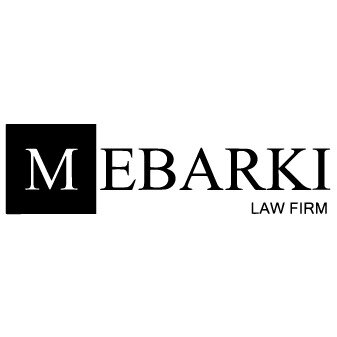Best Retirement Lawyers in Algeria
Share your needs with us, get contacted by law firms.
Free. Takes 2 min.
Or refine your search by selecting a city:
List of the best lawyers in Algeria
About Retirement Law in Algeria
Retirement in Algeria is regulated by the National Social Security Fund (CNAS). The retirement age in Algeria is 60 for men and 55 for women, with a minimum of 32 years of contributions for men and 27 years for women. The amount of the pension is calculated based on the average salary of the last 12 months of contributions.
Why You May Need a Lawyer
You may need a lawyer for assistance with navigating the complex retirement laws in Algeria, understanding your rights and obligations, appealing a denied pension claim, resolving disputes with your employer or the CNAS, or ensuring you receive the full benefits you are entitled to.
Local Laws Overview
Algerian law provides for both public and private sector retirement systems, with the CNAS overseeing public sector pensions and the National Social Security Fund (CASNOS) managing private sector pensions. Contributions are mandatory for all employees, and pension benefits are based on years of contributions and average salary.
Frequently Asked Questions
1. Can I retire before the official retirement age?
Early retirement is possible in Algeria under certain conditions, such as disability or long service.
2. What happens if my pension claim is denied?
If your pension claim is denied, you have the right to appeal the decision and seek legal assistance to help you navigate the appeals process.
3. How is the pension amount calculated?
The pension amount is calculated based on the average salary of the last 12 months of contributions and the number of years contributed.
4. Can I receive a pension if I have not contributed for the minimum required years?
If you have not contributed for the minimum required years, you may not be eligible for a full pension, but you may still be entitled to some benefits depending on your circumstances.
5. Can I continue working after retiring?
Once you reach the official retirement age, you can continue working if you choose to do so, but your pension benefits may be affected.
6. Can I transfer my pension benefits to another country?
Algerian pension benefits are generally not transferable to another country, but there may be exceptions under certain international agreements.
7. How can I ensure I receive the full pension benefits I am entitled to?
Seeking legal advice and assistance can help you understand your rights, navigate the pension system, and ensure you receive the full benefits you are entitled to.
8. Can I receive a pension if I am self-employed?
Self-employed individuals in Algeria are not covered by the CNAS pension system but may contribute voluntarily to the National Social Security Fund (CASNOS) to receive pension benefits.
9. Are pension benefits taxable in Algeria?
Pension benefits are subject to income tax in Algeria, but the tax rates and exemptions may vary based on the amount and source of the pension.
10. What should I do if I suspect my employer is not contributing to my pension fund?
If you suspect your employer is not contributing to your pension fund as required by law, you should seek legal advice to protect your rights and ensure you receive the benefits you are entitled to.
Additional Resources
For more information on retirement laws and benefits in Algeria, you can contact the National Social Security Fund (CNAS) or the Ministry of Finance and Labor.
Next Steps
If you need legal assistance with retirement issues in Algeria, consider contacting a qualified lawyer with experience in social security and employment law to help you understand your rights, navigate the pension system, and protect your interests.
Lawzana helps you find the best lawyers and law firms in Algeria through a curated and pre-screened list of qualified legal professionals. Our platform offers rankings and detailed profiles of attorneys and law firms, allowing you to compare based on practice areas, including Retirement, experience, and client feedback.
Each profile includes a description of the firm's areas of practice, client reviews, team members and partners, year of establishment, spoken languages, office locations, contact information, social media presence, and any published articles or resources. Most firms on our platform speak English and are experienced in both local and international legal matters.
Get a quote from top-rated law firms in Algeria — quickly, securely, and without unnecessary hassle.
Disclaimer:
The information provided on this page is for general informational purposes only and does not constitute legal advice. While we strive to ensure the accuracy and relevance of the content, legal information may change over time, and interpretations of the law can vary. You should always consult with a qualified legal professional for advice specific to your situation.
We disclaim all liability for actions taken or not taken based on the content of this page. If you believe any information is incorrect or outdated, please contact us, and we will review and update it where appropriate.
Browse retirement law firms by city in Algeria
Refine your search by selecting a city.












